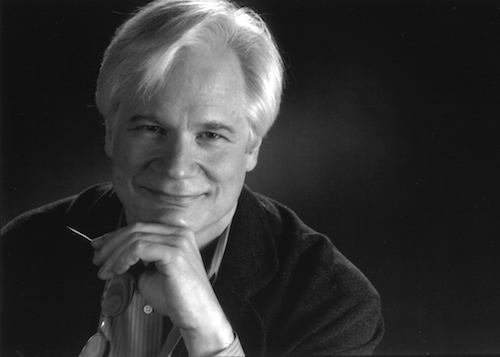Cantata Singers bring joy and awe to Christmas program
Christmas is a time of celebration and solemnity as well as awe. A deity born in a manger, as the stars guide three wise kings from distant lands to the infant, is a fantastic story even for those without any spiritual leanings.
“A Cantata Singers Christmas” highlighted the religious wonder and joy of that story on Friday night at First Lutheran Church with similarly surprising Renaissance and Baroque music.
The eighteen-member chorus began a cappella with Jacob Handl’s motet Mirabile Mysterium, a statement of astonishment at God becoming flesh, voiced in harmonic language that conductor David Hoose describes in the program notes as “convention shattering.” Hoose accented these tensions with restrained gestures in the chorus that kept the incarnation mysterious rather than explosive.
Schütz’s Dulcissime Et Benignissime Christe asks for spiritual purity in the face of earthly temptation, and the Cantata Singers sang an absolutely pacific prayer redolent of this motet’s origin in private worship.
Gabrieli’s O Magnum Mysterium, an outright public expression of praise, was written for two groups of contrasting high and low voices. Cantata Singers’s seamless balance and slight push on key lyrics evoked honest amazement at the thought of God being born before farm animals. A break for applause segued into Buxtehude’s chorale In DulciJubiliofor soprano, alto and bass plus two violins and continuo. Felicity Salmon, Amy Lieberman and Brian Church sang with a tight, transparent blend and a sense of conviction matched by the instrumental choir.
Hoose described Buxtehude’s Das Neugeborne Kindeleinas a “miniature oratorio,” and his dramatic affinities were evident in the subtle accelerations to already brisk tempos and the third section’s cadences truly reflecting the questioning tone of the text. Cantata Singers practically laughed at the adversaries facing God’s power and bubbled with real excitement at exclamations of “it’s time to sing!”
Works by Byrd about the Magi, the guiding star, and the miraculous birth followed intermission, starting with Vidimus Stellamand the three kings’ journey. Hoose’s arrangement of the song Out Of The Orient Crystal Skiesreplaced Byrd’s viol consort with a string quartet, here playing with atmospheric grain and grind alongside Jennifer Webb’s bright mezzo. Surge Illuminarefor the full chorus sparkled with the requisite “shine” for the light of God but turned quickly reverential for “the glory.” Hoose’s arrangement of Byrd’s Fantasia In Gfor harpsichord was a dark foil to the previous shimmering, featuring plaintive wordless vocals by violinist Daniel Stepner, playful call and response between him and violinist Danielle Maddon, flashes of Anne Black’s rich viola and Andrew Arceci’s firm, rounded violone at the low end.
The text of Purcell’s O Sing Unto The Lordis mostly celebratory yet soloists, full chorus, vocal groups and rhetorically phrased instrumentals add a sense of awe and even intimidation as the anthem progresses to its joyful finish. Mark Andrew Cleveland’s clear diction and refined yet mighty bass made real commands out of “Declare His honor…” and “Tell it out…” Soprano Janet Ross was also powerful in her praise. This was another mini-oratorio as well as the concert’s thematic climax, and an ear-opening display of the Cantata Singers’ fine intonation, blend, dynamic range, and textural richness.
The well-known text of Robert Parsons’s Ave Maria and his mostly consonant setting let the audience savor the mere sound and sheer passion of this chorus. Powerful but subtle chromaticism and Hoose’s evocatively choreographed final cadence left some performers with visibly teary eyes. After an emotionally and musically layered program, simple beauty and joy served as the perfect coda.
This program will be repeated 3 p.m. Sunday at First Lutheran Church. cantatasingers.secure.force.com/ticket.
Posted in Performances




